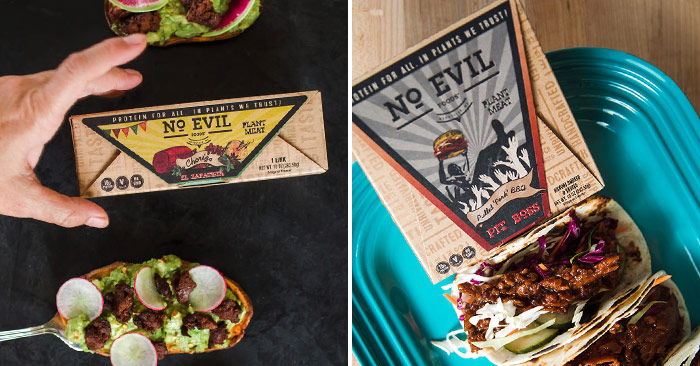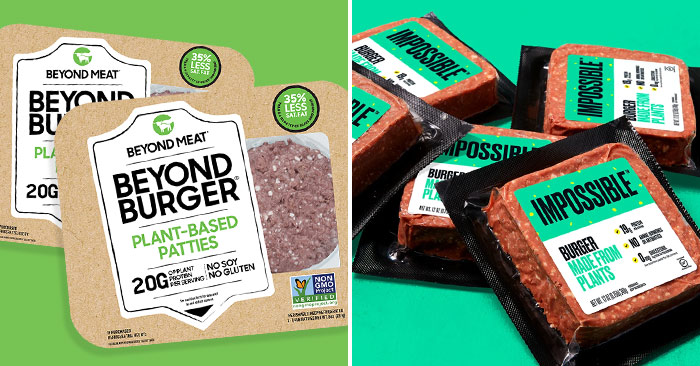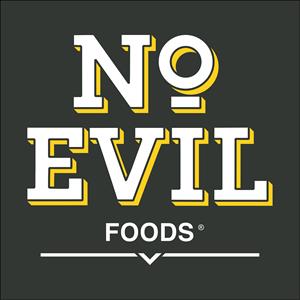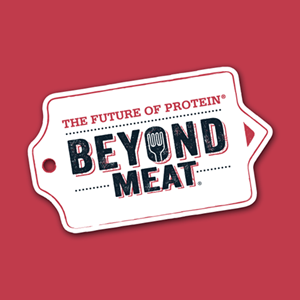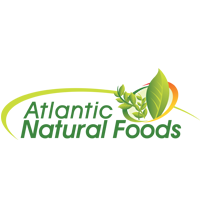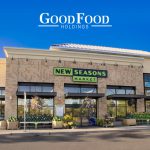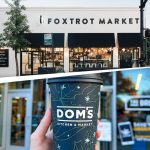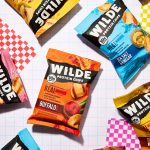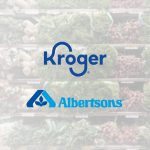Finding Promise in Plant-based During a Pandemic
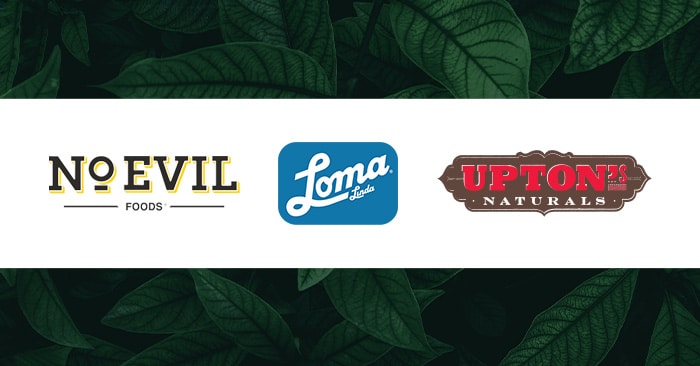
Hard as it is to say in a news story, don’t believe everything you read. Though headlines abound that the plant-based meat market is booming because of slowdowns in meat production, the category was already growing before the COVID-19 pandemic. Nevertheless, many plant-based brands have seen huge sales upticks since pantry loading began in March. Now, they need to figure out what comes next.
The emergence of meat production problems isn’t changing the plant-based brand ethos; most continue their pre-pandemic messaging — avoiding preachy tones, and betting that better informed consumers will be better decision-makers. At the same time, newly-minted industry heavyweights like Impossible Foods and Beyond Meat are seeking rapid expansion as the need for reliable protein alternatives now — and in the future — becomes even clearer to consumers.
Plant alternatives have gained power in past years — with some already standing strong in the meat case. According to SPINS data compiled by the Good Food Institute (GFI), retail sales of plant-based meat grew 18% in 2019, over six times faster than sales of conventional meat and nine times faster than total U.S. retail food sales, to reach $939 million in sales. Though still a small bite of overall meat consumption (comprising 2% of retail packaged meat’s dollar sales), the market is slated to grow: UBS analysts predict 28% annual growth to reach $85 billion by 2030. But the last three months have been boom times. Fresh meat alternative sales are up 259% for the 10 weeks ending May 9, according to research firm Nielsen, and the investment dollars are flowing — nearly $1 billion came into the category in the past quarter alone.
The question, then, is whether skimpy meat cases will make plant-based proteins even more popular. Already, here’s a key difference: plant-based supply chains are strong. The ingredients are plentiful and working conditions are much more easily adaptable.
For example, Asheville, North Carolina-based alternative meat brand No Evil Foods had ample space to improve its safety practices, adjusting its production lines to provide 300 square feet of space per worker, with no more than 40 employees working at a time, co-founder and CCO Sadrah Schadel said — prioritizing safety to keep product flowing into stores.
“The supply chains for plant-based and cultivated meat are much easier to turn on and off,” Caroline Bushnell, GFI’s associate director of corporate engagement, said. “This means plant-based producers can respond to world events much more quickly than conventional animal agriculture, which has more links and much longer lead times.”
During uncertain times, familiar, convenient staples like burgers can help attract new shoppers to plant-based products, Bushnell said, as they don’t require new product knowledge. Some may turn to plant-based items due to out-of-stock meats, but even that initial trial will likely result in some repeat purchases as consumers discover flavors and textures similar to meat analogues, she believes.
“There is a significant opportunity to introduce new consumers to this category, which just might be happening right now,” she said.
Mindful Messaging
But what’s the right way to do that? Current meat production issues might pose a prime opportunity to bring new consumers to plant-based, but how loudly should they beat the drum?
Certainly, at the heart of its name No Evil Foods points to the mistreatment of animals — but according to co-founder and CCO Sadrah Schadel, the plant-based brand won’t go after the meat business over its production issues.
“It’s certainly not our approach to bash the meat industry or meat eaters,” she said. “Our M.O. has been to provide options, education and build awareness more than anything. We’re planting a seed or an idea; as they learn more, they’ll have tools and knowledge to make better choices when they’re ready to do so.”
So instead, the brand is looking to market utility. The brand is taking a “conscious” course, providing more pantry-based recipes, such as Instant Pot-friendly ones, that use fewer ingredients as consumers cook at home.
“We’re trying to be very mindful of what people are really experiencing,” she said. “A lot of people are getting much more involved in cooking than ever before, [and others] have taken on bread baking and things outside their normal. We’re trying to balance both.”
Bricks-and-Mortar Help Build the Movement
While e-commerce has played a major role in pandemic sales, brick-and-mortar stores are still the key channel for growing plant-based brands — especially as consumers head to the meat case and encounter sales limits or out of stock items.
And they’re sticking to the stores: Impossible Foods last month announced expansion into 777 Albertsons stores and this month launched in 1,700 Kroger stores. Plant-based brand Beyond Meat, already sold in 25,000 stores, is eyeing value packs to help consumers stock up, CEO Ethan Brown said earlier this month.
No Evil Foods recently relaunched its e-commerce site, but Schadel said in-store visibility certainly matters. No Evil Foods is sold in 5,500 stores including Whole Foods, Target and Kroger and is providing new coupons on its packages that hopefully catch customers’ eyes to drive trial, Schadel said. Diana Buckel, the brand’s VP of sales, noted that after lags in March and April, buyers are now willing to discuss their assortment for Q4 and into 2021, with a “keen interest” in plant-based trends.
Dan Staackmann, founder and president of Upton’s Naturals, said the brand has had increased sales during the pandemic, but its next product launches were put on hold by retailers until the summer. A new shredded jackfruit was set to debut this spring nationally at Whole Foods, along with UpDog, a vegan hot dog.
“We still have our broker network making connections, but so many [retailers] have pumped brakes with any new items,” he said.
Outlook
Investors are already hungry for plants: according to GFI, at least $824 million was invested in alternative protein companies in 2019, and Q1 2020 saw $930 million in additional investments, despite the pandemic.
“Now is the time to double down, and companies know that,” Bushnell said.
One reason is competition: strategics are already launching plant-based innovation. Bushnell noted that large CPG companies, including Tyson, Smithfield and Hormel, have made efforts to reposition as protein companies, but not always quickly enough. The pandemic delayed Kellogg’s Incogmeato launch, for example.
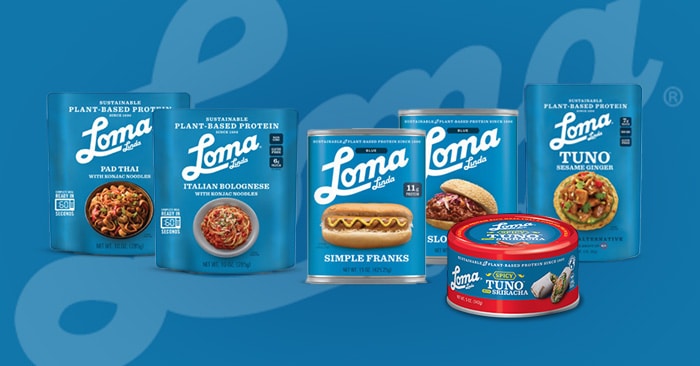
Meanwhile, as refrigerators and freezers fill up with plant based meats, there are other vegetarian proteins headed for the center store. Atlantic Natural Foods (ANF) has manufactured shelf-stable plant-based food brand Loma Linda since 2009 and acquired the brand in 2014. Fueled by the brand’s shelf-stable plant-based tuna (TUNO), chicken and more, ANF has grown 40% year-over-year to reach $40 million in sales, with a large increase in new customers during the pandemic, ANF founder Doug Hines said.
The company may be poised for another wave of growth. Prior shopper trends during 2008’s economic downturn saw a return to “staples, including shelf-stable products, as consumers tend to gravitate to comfort with value,” Hines said. But the plant-based market then differed greatly, having grown much larger since.
“We saw it as a future growth opportunity in viewing a long term need in the food supply chain for alternative protein,” he said. “Stability, convenience and value are a constant no matter what year it is, but back then there was not the plant-based movement there is today.”
